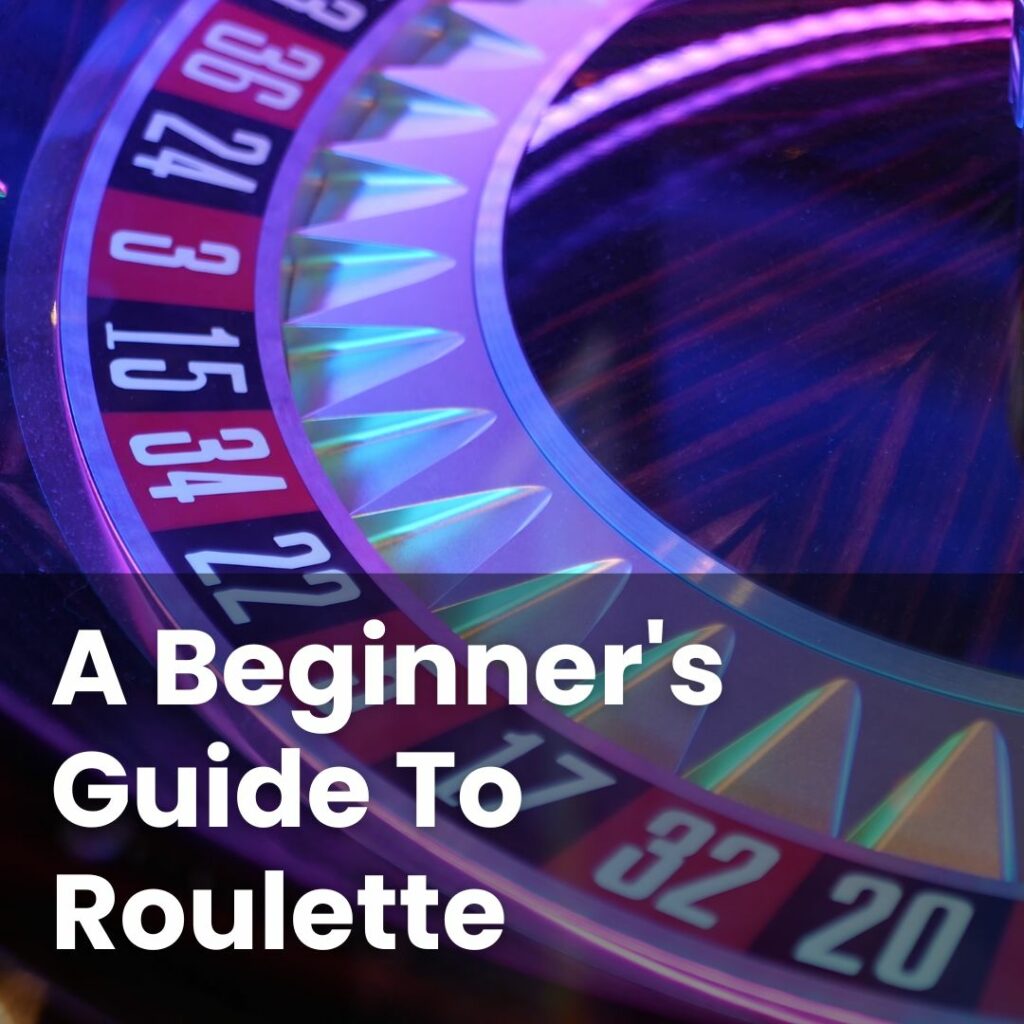Roulette is a well-known casino game that has been played in various forms for a long time. Whether it is in a physical venue or through an online platform, the game involves a wheel, a ball, and a set of numbers.
This guide introduces the main parts of the game, including the different types of roulette, how bets may be placed, and the basic steps involved in playing. We provide simple and clear information that someone new to the game may find useful.
For those who are learning about roulette for the first time, this guide is a helpful introduction. The sections that follow explain each part of the game in more detail, with a focus on clear explanations and responsible play.
What Is Roulette?
Roulette is a classic casino game that involves a wheel, a small ball, and a betting table. The wheel is divided into either 37 or 38 numbered pockets, depending on whether it’s a European or American roulette wheel. The numbers range from 0 to 36, with the American version having an additional 00 pocket.
Players place bets on where they think the ball will land once the wheel is spun. These bets might be on a single number, a range of numbers, or even the colour of the pocket where the ball will settle – red or black.
The croupier is responsible for spinning the wheel and managing bets. As the wheel spins, the ball is released in the opposite direction. When the wheel slows down, the ball eventually falls into a numbered pocket, and winning bets are paid out according to the odds.
What Are The Different Roulette Variations?
Roulette comes in a few different variations, each with its own unique features. The most common ones you’ll come across are European, American, and French roulette. Understanding these versions may help players decide which version they would prefer to explore.
Knowing the key differences between these variations may also offer a more rounded understanding of the game. The following sections explain the features of European, American and French roulette, and show the differences between them.
European
The European version of roulette is popular due to its straightforward design and structure. The wheel features 37 pockets, numbered from 0 to 36. This single zero distinguishes it from the American version, impacting the overall probability of where the ball might land. Due to the single zero, the European version has a house edge of approximately 2.7%.
Each number is alternately coloured red or black, except for the green zero. This design provides players with a range of betting options, from predicting a specific number to choosing between categories like odds and evens or red and black.
The betting table in European roulette mirrors the wheel’s numbers and offers various betting combinations. Players place their chips on the table to indicate their chosen bets before the croupier spins the wheel.
American
American roulette is a variation of the game that includes a distinct difference in its wheel design. It features an additional ’00’ pocket, resulting in a total of 38 pockets: numbers 1 to 36, a single 0, and a double 00.
The presence of this extra pocket changes the overall probabilities, creating a different dynamic compared to other versions. Players might notice that the betting options remain similar, but outcomes may vary slightly due to the additional number. As a result of the double zero, the house edge is approximately 5.26%.
As with other roulette variations, players place their chips on the betting table, predicting where they think the ball will land after spinning. The introduction of the double zero may influence how players plan their bets.
When participating in American roulette, players may want to keep in mind the unique structure of the wheel. Practising responsible gambling by setting limits and sticking to a playing budget can contribute to a positive experience.
French
French roulette is similar to the European version, featuring a wheel with 37 pockets numbered from 0 to 36. This version is often noted for its unique table layout and specific rules that distinguish it from the others.
One of the notable rules in French roulette is “La Partage.” If the ball lands on zero, players who placed even-money bets, such as red/black or odd/even, receive half of their stake back. This rule may make losses slightly less impactful.
Another rule sometimes used is “En Prison.” If an even-money bet is placed and the ball lands on zero, the bet is not lost immediately. Instead, it is held “in prison” for the next spin, potentially allowing another chance to win.
The table itself may have French terms such as “Manque” for low numbers and “Passe” for high numbers. This presentation may add to the atmosphere but functions similarly to other roulette games.
See Our Top-Rated Online Casinos
Find the best online casino bonuses, read reviews from real players & discover brand new casinos with our list of recommended sites
Roulette Rules Explained
Roulette is a straightforward game with a few essential rules to understand before playing. At the start of each round, players are invited to place their bets on the roulette table. Bets may be made on individual numbers, sequences of numbers, or attributes like red or black, and odd or even.
Once bets are placed, the croupier spins the wheel and releases a small ball in the opposite direction. As the wheel slows, the ball eventually settles into one of the numbered pockets.
If the ball lands on a number or category that a player has bet on, they win. The payout depends on the type of bet placed and its odds. For example, a straight-up bet on a single number generally pays out more than betting on red or black.
After wins are paid out, players may decide on new bets for the next spin. Each round follows this sequence of placing bets, spinning the wheel, and payouts for winners.
Roulette Odds and Payouts Explained
Understanding the odds and potential payouts in roulette is important for anyone looking to play the game. The different types of bets offer varying odds and payouts, which are determined by the probability of the ball landing on specific outcomes.
A straight-up bet, placed on a single number, offers the potential for the highest payout, typically 35 to 1. This is because the odds of the ball landing on any particular number are lower.
For those betting on two numbers with a split bet, the potential payout is 17 to 1. This is because the chances of winning increase slightly with two numbers covered.
Players might choose a street bet, covering three numbers in a row, with potential payouts of 11 to 1. A corner bet, on four numbers, typically offers 8 to 1.
Column and dozen bets cover 12 numbers each, with potential payouts typically being 2 to 1.
Even-money bets, such as red or black, and odd or even, cover nearly half of the wheel, with odds of nearly 50/50 and potential payouts of 1 to 1.
When playing, understanding these odds and potential payouts might help in making informed betting choices. As always, players are encouraged to set limits and approach the game responsibly.
How To Win at Roulette
Winning at roulette is not something that can be guaranteed, as it is fundamentally a game of chance. Each spin of the wheel is independent, meaning past results do not influence future outcomes.
One approach players may consider is becoming familiar with the types of bets available. Understanding the odds and potential payouts might help players make informed decisions during their gaming sessions.
Setting a budget before starting and deciding how much to bet per round can contribute to a more controlled approach. Players are encouraged to determine a limit on their spending, stepping away when it’s reached, as part of a sensible gameplay strategy.
Additionally, players might choose to focus on even-money bets such as red/black or odd/even, as these cover a larger portion of the wheel, although the potential payout is smaller.
Ultimately, enjoying the process and maintaining a responsible mindset is important. Treating each game as a chance to learn rather than focusing on winning may contribute to a more enjoyable experience.
What Is The Best Roulette Strategy?
When it comes to roulette, one might wonder if there is a “best” strategy. Since roulette is ultimately a game of chance, there isn’t a fail-proof approach that guarantees success every time. However, various betting strategies exist that players may choose based on their personal preferences and style of play.
Some popular strategies include Martingale, Paroli, Labouchere, D’Alembert, and Fibonacci. Each of these methods offers a different structure and approach to placing bets during the game.
The choice of strategy may depend on what a player finds most comfortable and enjoyable. It’s important to remember that no strategy removes the element of chance, so setting limits and practising responsible gambling is essential, regardless of the method chosen.
The upcoming sections will delve into these strategies further, helping players understand and explore each one.
Martingale
The Martingale strategy is one of the most well-known betting methods in roulette. It is based on the concept of doubling the bet after each loss, with the aim of recovering previous losses with a potential win.
Players often apply this strategy to even-money bets, such as red or black, and odd or even, where the outcomes are almost 50/50. The idea is to start with a small bet and double it every time the bet does not win.
The concept is simple: if a win is eventually achieved, the player may recoup all previous losses and gain a profit equal to the original bet. However, it is important to note that this strategy requires a considerable budget, as losses may accumulate quickly. Additionally, winning can never be guaranteed; losses may not necessarily be recouped at all.
Players should carefully consider their financial limits before opting for the Martingale strategy. It is vital to ensure that they are playing responsibly and not wagering more than they can afford. Setting a clear budget beforehand and sticking to it plays a key role in responsible gambling.
Paroli
The Paroli strategy is a positive progression betting system often applied in roulette by players who prefer a structured approach to managing their wagers. Unlike some other strategies, Paroli involves increasing the bet after a win rather than a loss.
The core idea is simple: a player starts with a base bet and doubles it if the bet wins, typically up to three consecutive wins. If successful, this cycle is completed, and the player returns to the original base bet.
This strategy might be used by those who prefer to seize possible winning streaks while limiting potential losses. If a bet loses at any point during the cycle, players generally return to the base bet rather than continuing to increase their wagers.
While the Paroli strategy may offer a straightforward framework for betting, players should remain aware of their limits and play responsibly. Setting a clear budget before beginning any betting session can help manage your wagers.
Labouchere
The Labouchere strategy, also known as the cancellation system, is a method used by some roulette players that involves a planned sequence of bets.
Players begin by writing down a sequence of numbers. The sum of this sequence represents the desired profit. For each bet, the player adds the first and last numbers of the sequence to determine the wager.
If the bet wins, those two numbers are crossed out. If the bet does not win, the amount lost is added to the end of the sequence. The process continues until the entire sequence is crossed out, signalling the initial goal has been met.
However, it is important to keep in mind that winning can never be guaranteed. While this strategy may provide a structured way to manage bets, players should remain mindful of their limits. It’s important for players to set a budget beforehand and never gamble more than they can afford. Practising responsible gambling is key to maintaining a positive experience, regardless of the strategy used.
D’Alembert
The D’Alembert strategy is a simple betting method frequently adopted by roulette players. This strategy involves adjusting bets in a straightforward manner based on the outcomes of previous spins.
Players start by choosing a base betting unit. After a loss, they increase their bet by one unit. If they win, they decrease their bet by one unit. Some believe this progression creates a balanced approach over multiple rounds.
The D’Alembert strategy is often seen as a more moderate system compared to others, as it aims to balance out wins and losses gradually. However, like all methods, it does not change the house edge or the element of chance in roulette.
Players who opt for this strategy should ensure they set a budget for their play. Sticking to these limits is crucial for maintaining a responsible gambling approach. Remember, the main goal is to enjoy the game and play within one’s means.
Fibonacci
The Fibonacci strategy is a betting system based on a sequence where each number is the sum of the two preceding numbers. It’s a structure some roulette players use to guide their betting amounts.
Players start with a base betting unit. The sequence begins with 1, followed by another 1, then 2, 3, 5, and so on. Each number in the sequence represents the number of units to bet.
When using this strategy, a player goes one step forward in the sequence if they experience a loss, increasing their bet according to the next number. If they experience a win, the player typically moves two steps back in the sequence to determine the new bet amount.
This progressive system is used by some players who prefer a structured approach to managing their bets. The slow progression might appeal to those who want to keep track of their wagers methodically.
As with any betting strategy, it is crucial for players to set a budget and adhere to it. Responsible gambling practices ensure that the experience remains enjoyable and within one’s means.
Do Roulette Strategies Help You Win Every Time?
Roulette strategies are often discussed by players looking to add another dynamic to their experience at the table. However, it’s important to remember that roulette is a game of chance, and no strategy guarantees a win every time.
Various strategies, such as Martingale or Fibonacci, may offer structured methods for placing bets. These may help players manage their wagers and approach the game with a plan. While these strategies offer a framework, they don’t alter the game’s inherent unpredictability.
Players should view strategies as tools that might assist in managing their gameplay rather than foolproof solutions. This approach might help in maintaining a realistic outlook on the potential outcomes.
When engaging with roulette, setting a budget and playing within one’s means remain crucial. Using strategies wisely may contribute to a more enjoyable experience, but responsible gambling practices are essential to ensure the game stays entertaining in your comfort zone.
Find The Best Online Roulette Casinos
Finding the right online casino can make a big difference in a player’s roulette experience. With so many options available, it can be helpful to know what to look for.
A good online casino should offer a variety of roulette games, including popular versions like European roulette. This provides players with the chance to try different styles of play.
Security and fairness are also key considerations. Reliable casinos should hold a valid licence from a recognised regulatory body, ensuring games are fair and player information is secure.
For those seeking the best online roulette casinos, a visit to Best Casino HQ, which showcases the top casino sites, may be useful. Our list provides a curated selection of trustworthy options licensed by the UK Gambling Commission (UKGC) for players to explore.
Players should always remember to gamble responsibly. Setting personal limits on spending and time can help keep the experience enjoyable and safe. By choosing the right platform, players can look forward to having a positive time at the virtual roulette table.
Roulette FAQs
Is Roulette Rigged?
Concerns about fairness in roulette may arise, but reputable casinos are committed to providing a fair gaming environment. In established casinos, roulette wheels are designed and maintained to ensure random and unbiased outcomes for every spin. Players should seek out casinos that are licensed and regulated, as these institutions routinely check equipment to uphold high standards of fairness.
How Many Numbers In Roulette?
In roulette, the number of pockets on the wheel differs based on the variation being played. European and French roulette wheels have 37 pockets numbered from 0 to 36. American roulette includes an extra pocket, the double zero (00), making a total of 38 pockets.
What Are The Odds on Roulette?
The odds in roulette are determined by the type of bet a player places and the specific variation of the game they are playing. For instance, a straight-up bet on a single number offers odds of 35 to 1. In European roulette, the odds of hitting a single number are 1 in 37, while in American roulette, with the extra double zero, the odds are 1 in 38. Understanding these odds may help players make informed decisions, but it’s important to remember that roulette is a game of chance, and outcomes are always unpredictable.





